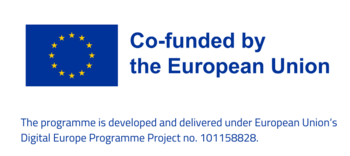Smart, embedded systems are found everywhere in our daily lives, from mobile phones to household appliances, from robotic manufacturing systems to unmanned vehicles, cars, airplanes, satellites, healthcare devices, and even elevators. Many of these include safety and security issues to be taken care of. The growing intelligence of embedded systems requires more and more efficient onboard computing units, including sophisticated chips (like hardware accelerators or signal processors) as components, or even integrated heterogeneous on-chip systems.
With the rapid development of Artificial Intelligence and the Internet of Things, our dependence on smart technology will only continue to increase, meaning companies are actively recruiting forward-thinking, creative engineers, innovators, system architects, and specialists equipped with the ability to innovate the embedded systems of tomorrow. Thanks to the Embedded Systems Design master's programme, you will acquire the skills and confidence to compete in this booming field.

Key benefits
The interdisciplinary master's programme is designed to equip you with all the insights on the role of embedded systems and their design in a smart digital society, and the practical skills to transform innovative ideas into smart solutions. The master's curriculum will cover everything from the basics of embedded systems design to the job-specific skills demanded by such roles as:
- Embedded systems and solutions engineer
- Robotic systems software engineer
- Embedded operating systems software developer
- Hardware engineer/designer
- Wireless embedded software engineer
- System-on-chip design engineer
- Audio software systems engineer
- Autonomous vehicle systems engineer
- Automotive systems engineer
- Internet of Things solutions architect
- Software test engineer
- Embedded systems R&D test engineer
- Space vehicle software test and systems engineer
To enhance the learning experience, the programme includes an opportunity to apply your new skills and knowledge towards creating state-of-the-art services and solutions based on embedded systems.
Unlock new career opportunities
Careers in embedded systems are simply exploding. You will leave this programme with the knowledge and skills needed to unlock a range of career opportunities. Our graduates can be found working in open innovation settings and leading technology companies, including sectors as manufacturing, transportation, telecommunications, construction, agriculture, forestry, mining, energy, healthcare, and education. Some of them have gone on to launch their own successful innovative start-ups and consultancies.
Ready to join their ranks? Then apply today and start driving the digital transformation with Embedded Systems Design!
Is this programme for me?
Our Embedded Systems Design master’s programme is open to applicants with either a Bachelor of Science degree or who are in their final year of study in:
- Computer Science/Software Engineering
- Computer Engineering
- Information Systems
- Electrical Engineering/Electronics
- Communication Engineering
- Mechatronics
- Mathematics
The studies should include at least 40 ECTS of ICT-oriented courses (computer science, computer engineering, programming, communications technology) and at least 20 ECTS of mathematics (calculus, algebra, statistics).
In some circumstances, relevant work experience may compensate for a lack of relevant degree. If you have such work experience, make sure to include it in your letter of motivation.
How is the programme structured?
All EIT Digital Master School programmes follow the same scheme:
- Students study one year at an ‘entry’ university and one year at an ‘exit’ university.
- The first year is similar at all entry points, with a focus on basic courses that lay the foundation for the chosen technical programme. Students are introduced to business and management during this first year. During the second semester, a design project is combined with business development exercises to demonstrate how technology can be transformed into a successful business with optional elective courses. Students are taught how to prepare and present a convincing business plan.
- In between the first year and the second year, students participate in the EIT Digital 2-week Summer School programme that addresses business opportunities within a socially relevant theme.
- The second year offers a specialisation and a graduation project. The graduation project includes an internship at a company or a research institute and cumulates with a Master thesis having a strong innovation and entrepreneurship dimension.
- Graduates receive degrees from the two universities and a certificate awarded by the European Institute of Innovation and Technology.
To learn more about the I&E minor please click here.
Scholarships
With support from the RESCHIP4EU project, EIT Digital provides for three types of scholarships:
- Scholarships of Excellence - Full tuition fee waiver and monthly allowance (based on average living costs in the study country)
- Full tuition fee waiver
- Half tuition fee waiver
Scholarships are only available to EU Member States nationals (including overseas countries and territories (OCTs) and nationals from listed EEA countries and countries associated to the Digital Europe Programme.
You apply for scholarships during the application process in the application portal.
Please note that besides the scholarships offered by EIT Digital, our students may also be eligible for other scholarships, grants or financial aid offered by our partner universities. Check all of our Scholarships and Additional Financing Options.
The funding scheme is also advertised on the EU Funding & Tenders portal


